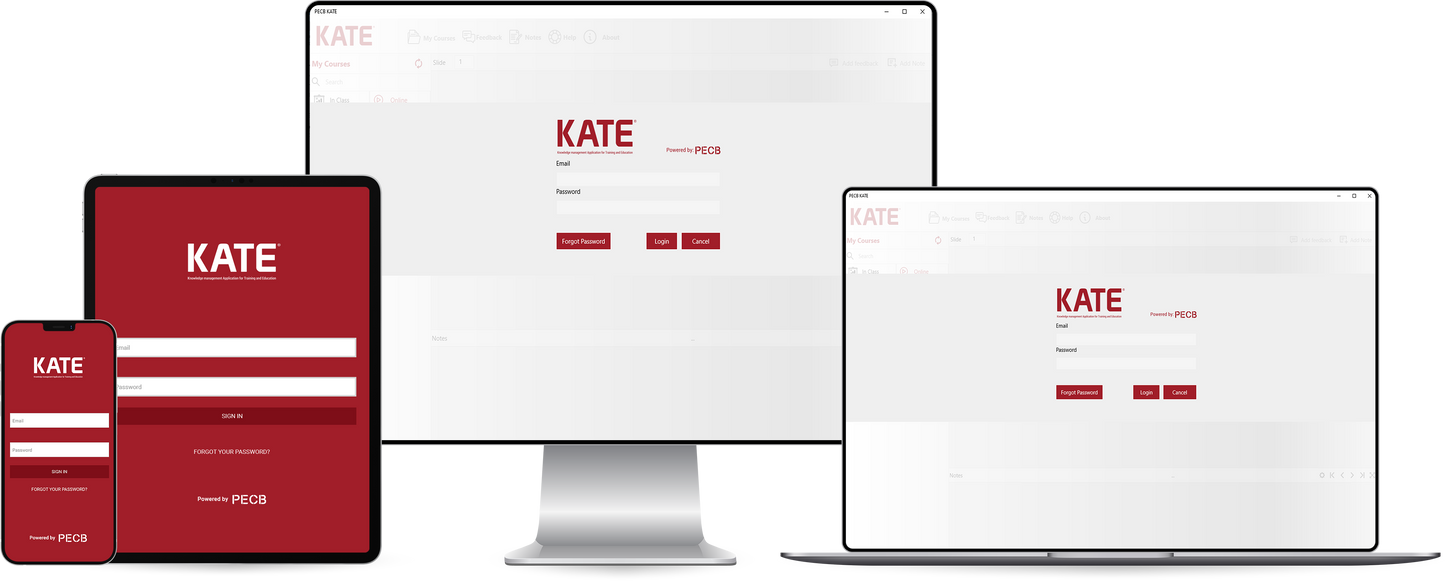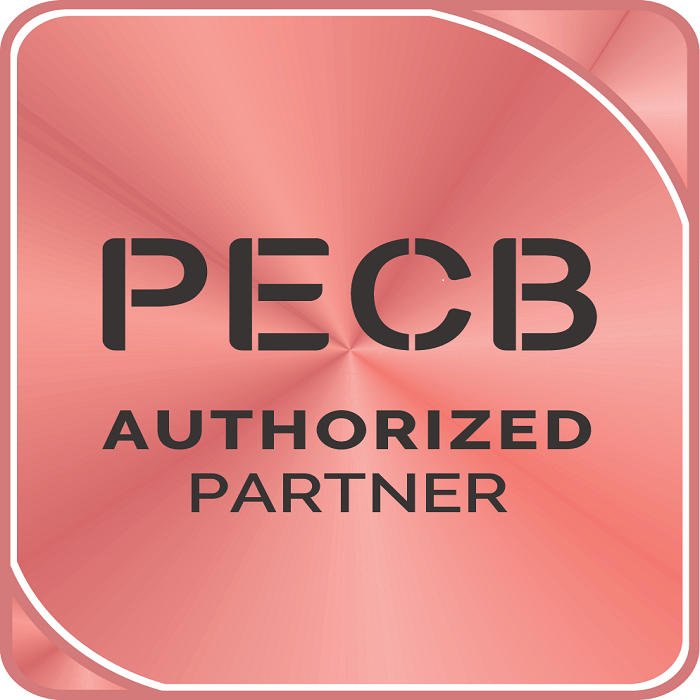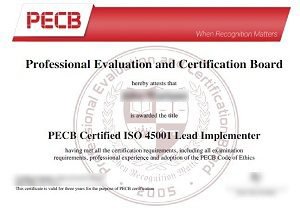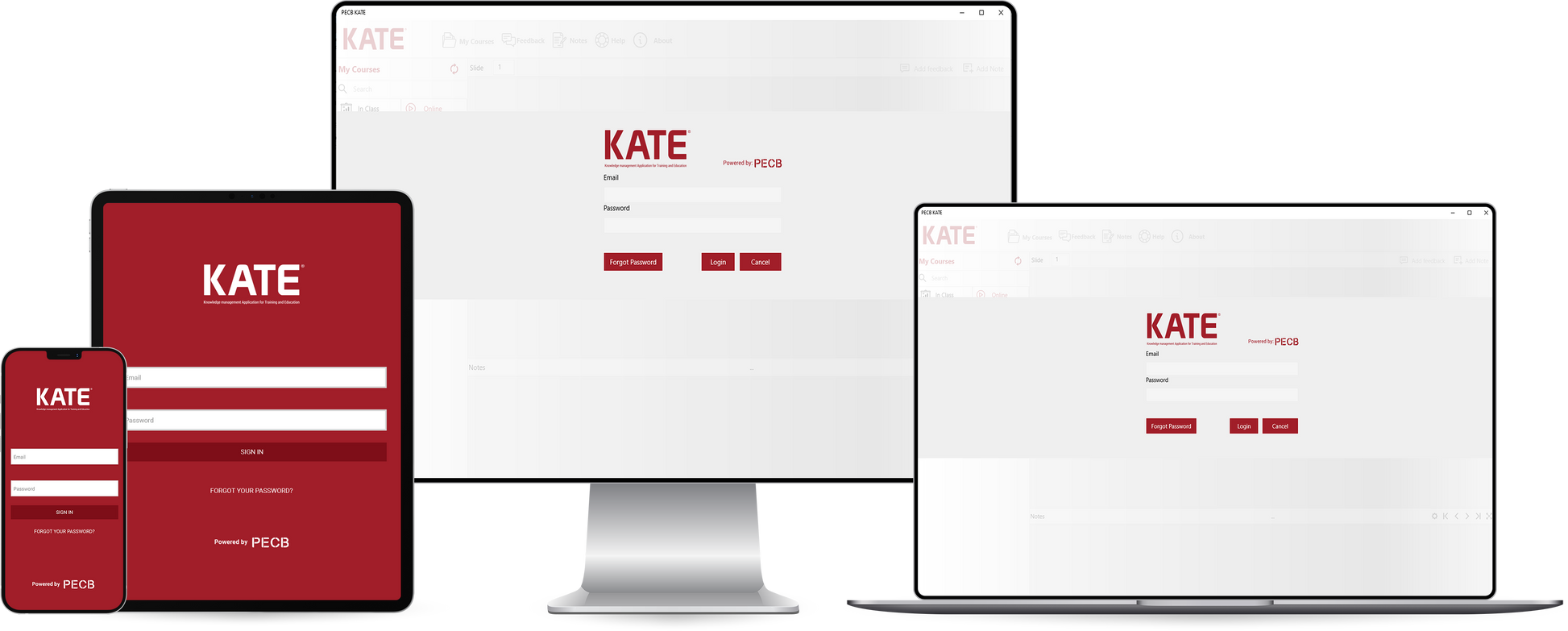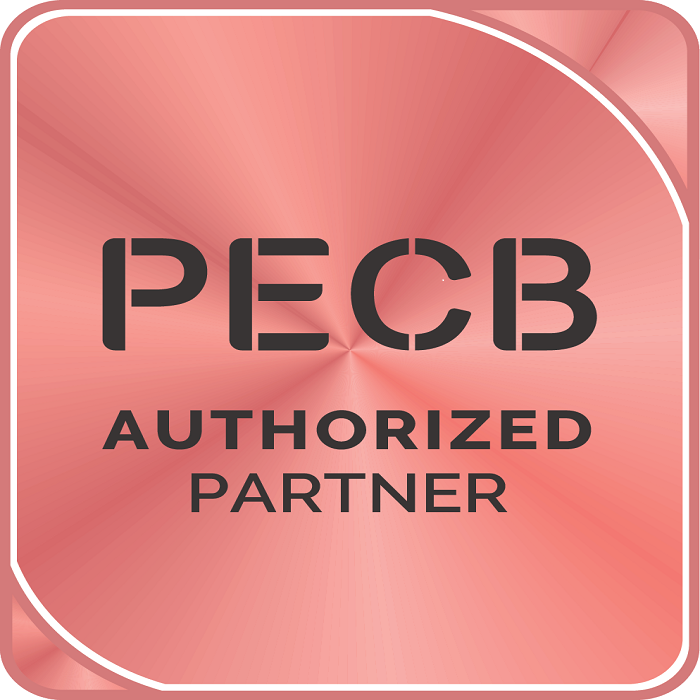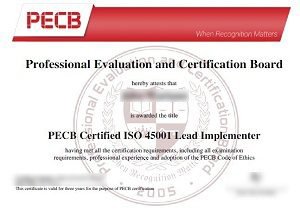Africa Sustainable Performance
PECB Certified ISO 22000 Lead Implementer | Self-study training
PECB Certified ISO 22000 Lead Implementer | Self-study training
Couldn't load pickup availability
Partager
Develop the necessary competencies to guide and support organization in establishing, implementing, maintaining, and continually improving an FSMS based on ISO 22000
Why should you attend?
The age of globalization has brought new challenges to all industries, and the food industry is no exception. The origin and safety of food products is a main concern in today’s market. It has become increasingly difficult to have proper knowledge on the production methods and origin of food products. Internationally recognized food safety measures are no longer a privilege; they have become a basic requirement for all organizations that deal with food production or service. The implementation of a food safety management system (FSMS) is a strategic decision for ensuring the safety of food delivered to the consumer. This training course, developed by PECB, aims to help participants develop the knowledge and skills necessary to support an organization in establishing, implementing, managing, and maintaining an FSMS based on ISO 22000 and other best practices. Implementers play a key role in an organization’s ability to successfully implement and maintain an FSMS. The training course enables you to help organizations establish processes needed to maintain the quality and safety their products and services, while adhering to all legal, regulatory, and other requirements. As part of this training course, you will learn how to establish controls that proactively prevent noncompliance and contribute to the creation of a culture of safety, integrity, transparency, and openness. The training course is followed by the certification exam. If you pass, you can apply for the “PECB Certified ISO 22000 Lead Implementer” credential. The “PECB ISO 22000 Lead Implementer” certificate is internationally recognized. It validates your professional capabilities and competences to implement an FSMS in an organization based on the requirements of ISO 22000.
Who should attend ?
- Managers or consultants involved in Food Safety Management
- Expert advisors seeking to master the implementation of a Food Safety Management System
- Individuals responsible for maintaining conformance with ISO 22000 requirements
- FSMS team members
Learning objectives
- Gain a comprehensive understanding of the concepts, approaches, methods, and techniques used for the implementation and effective management of an FSMS
- Acknowledge the correlation between ISO 22000 and other standards and regulatory frameworks
- Gain the ability to interpret the requirements of ISO 22000 in the specific context of an organization
- Develop the necessary knowledge and expertise to support an organization in effectively planning, implementing, managing, monitoring, and maintaining an FSMS
- Acquire the expertise to advise an organization in implementing FSMS best practices
Examination - Duration: 3 hours
The "PECB Certified ISO 22000 Lead Implementer" exam fully meets the requirements of the PECB Examination and Certification Programme (ECP). The exam covers the following competency domains:
- Domain 1 Fundamental principles and concepts of a food safety management system
- Domain 2 Food safety management system requirements
- Domain 3 Planning of an FSMS implementation based on ISO 22000
- Domain 4 Implementation of an FSMS based on ISO 22000
- Domain 5 Monitoring and measurement of an FSMS based on ISO 22000
- Domain 6 Continual improvement of an FSMS based on ISO 22000
- Domain 7 Preparation for an FSMS certification audit
For specific information about exam type, languages available, and other details, please visit the List of PECB Exams and the Examination Rules and Policies.
FAQ
FAQ
FAQ
Course type and price
- The courses in this webpage are PECB certified Self-study Courses.
- The course can be remotely accessed worldwide
- Certification fees are included in the price of the exam.
- A detailed course manual with practical examples is accessible throughout the training.
- If you fail the exam, you can retake it within 12 months at no additional cost.
Course Approach
- You register for an account at PECB website, before or after order to ASP
- Place order to ASP
- After receiving your bank order payment, you will have access to the course materials, in English unless otherwise specified, normally within a couple of working days
- You can remotely access or download the training materials with PECB Kate app.
- You can complete the self-study at home at your pace.
- The self-study and the initial exam are to complete within 4 months from access granted to the course materials.
Exam
- You can book an online exam at PECB website, for free with the exam code provided by PECB, normally within 4 months after your order to DQS HK.
- Well before the online exam, create exam profile at PECB website, download PECB Exams app and install it at your computer.
- The exam is open-book with duration for 3 hours.
- You can book an online exam retake, if required, at PECB website for free with the exam code provided by PECB, normally within 3 months after your initial exam.
Certificat et qualification
- After receiving an email from PECB with exam passing result, you can reply by email to PECB with request for a course certificate.
- If you have the required working experience and project experience specified in course brochure, you can further apply to PECB for the associated qualification.

About PECB
- Professional Evaluation and Certification Board (PECB) is a Personnel Certification Body accredited by The International Accreditation Service (IAS) under ISO/IEC 17024 – Requirements for bodies operating certification of persons.
- PECB is a full member of International Personnel Certification Association (IPC).
- ASP is a Training Partner authorized by PECB.
Eligibility
PECB certifying trainings provided by Africa Sustainable Performance are available to learners residing in Africa in any of the following countries:
- Egypt, Ethiopia, Angola, Benin, Botswana, Burkina Faso, Burundi, Equatorial Guinea, Togo, Eritrea, Cabo Verde, Gambia, Republic of Congo, Morocco, Democratic Republic of Congo, Djibouti, Guinea, Guinea-Bissau, Ghana, Gabon, Zimbabwe, Cameroon, Comoros, Ivory Coast, Kenya, Lesotho, Liberia, Libya, Rwanda, Madagascar, Malawi, Mali, Mauritania, Mauritius, Mozambique, Namibia, South Africa, Niger, Nigeria, Algeria Sierra Leone, Senegal, Seychelles , Sao Tome and Principe, Swaziland, Sudan, Somalia, Tanzania, Tunisia, Uganda, Zambia, Chad and Central African Republic.

